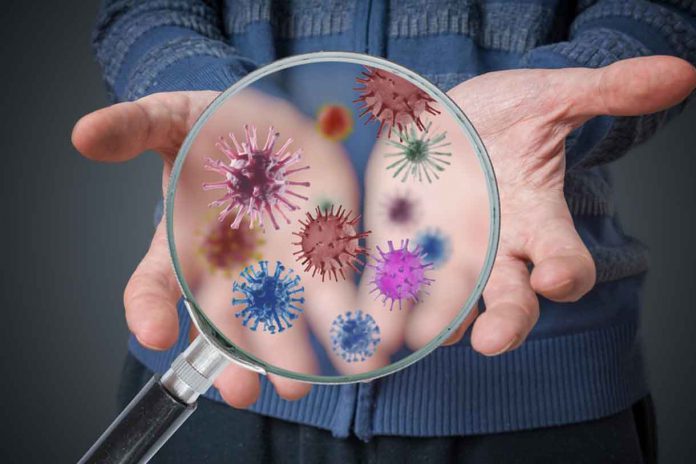COVID-19 Update – Africa has recorded a 43% week-on-week rise in COVID-19 deaths, as hospital admissions increase rapidly and countries face shortages in oxygen and intensive care beds.
While numbers of cases in Canada and the United States are declining, that is not the case in other parts of the world.
Fatalities increased to 6273 in the week ending on 11 July 2021 from 4384 deaths in the previous week. Africa is now less than 1% shy of the weekly peak reached in January when 6294 deaths were recorded. Namibia, South Africa, Tunisia, Uganda and Zambia accounted for 83% of the new deaths recorded in the past week. The continent’s case fatality rate, which is the proportion of deaths among confirmed cases, currently stands at 2.6% against the global average of 2.2%.
COVID-19 cases have risen for eight straight weeks, topping 6 million on 13 July 2021. Over the past month, Africa recorded an additional 1 million cases. This is the shortest time it’s taken so far to add 1 million cases. Comparatively, it took around three months to move from 4 million to 5 million cases. This COVID-19 surge is the fastest the continent has seen.
The surge is driven by public fatigue with key health measures and an increased spread of variants. To date, the Delta variant, which is currently the most transmissible of all variants, has been detected in 21 African countries, while the Alpha variant is in 35 countries and Beta in 30.
“Deaths have climbed steeply for the past five weeks. This is a clear warning sign that hospitals in the most impacted countries are reaching a breaking point,” said Dr Matshidiso Moeti, World Health Organization (WHO) Regional Director for Africa. “Under-resourced health systems in countries are facing dire shortages of the health workers, supplies, equipment and infrastructure needed to provide care to severely ill COVID-19 patients.
Hospital admissions in around 10 countries have increased rapidly and at least six countries are facing shortages of intensive care unit beds. Demand for medical oxygen has spiked and is now estimated to be 50% higher than at the same time in 2020, yet supply has not kept up. A rapid WHO assessment of six countries facing a resurgence found that just 27% of the medical oxygen needed is produced.
“The number one priority for African countries is boosting oxygen production to give critically ill patients a fighting chance,” Dr Moeti said. “Effective treatment is the last line of defence against COVID-19 and it must not crumble.”
Insufficient quantity, disrepair or poor maintenance of production plants as well as challenges in distribution, scarcity of cylinders, personnel or technical skills are among the barriers to adequate medical oxygen supply in Africa.
In a WHO survey to which 30 African countries responded, only 18 countries had included corticosteroids in their national treatment guidelines, as recommended by WHO. Nine countries are including medications that are not recommended in treating COVID-19, such as hydroxychloroquine and lopinavir.
WHO is working with countries to improve COVID-19 treatment and critical care capacities by providing guidance on clinical management and support to update protocols and train health workers. Along with partners, the organization is also delivering essential medical supplies, such as oxygen cylinders and has supported the manufacture and repair of oxygen production plants.
The rise in cases comes amid inadequate vaccine supplies. The continent has vaccinated 52 million people since the start of the vaccine rollout in March this year, accounting for just 1.6% of the 3.5 billion people vaccinated worldwide. Only 18 million people in Africa are fully vaccinated, representing 1.5% of the continent’s population compared with over 50% in some high-income countries.
“The double barrier of vaccine scarcity and treatment challenges is seriously undermining effective response to the surging pandemic,” said Dr Moeti. “However, with the expected fresh vaccine shipments and strong preventive measures, we can still turn the tide against the virus.”
Additional vaccines supplies expected in the coming weeks and months will help shore up the vaccination rates. Around 190 million extra COVID-19 vaccine doses will be needed to fully vaccinate 10% of the Africa’s population by September 2021, with around 750 million more doses needed to fully vaccinate 30% by the end of 2021.
Dr Moeti spoke during a virtual press conference today facilitated by APO Group. She was joined by Hon. Dr Jean-Jacques Mbungani Mbanda, Minister of Public Health, Hygiene and Prevention, Democratic Republic of the Congo, and Dr Ishmael Katjitae, Physician Specialist, Ministry of Health and Social Services, Namibia.
Also on hand to answer questions were Dr Richard Mihigo, Coordinator, Immunization and Vaccines Development Programme, WHO Regional Office for Africa; Dr Thierno Balde, Team Leader, Operational Partnerships, WHO Regional Office for Africa; and Dr Nicksy Gumede-Moeletsi, Regional Virologist, WHO Regional Office for Africa.








